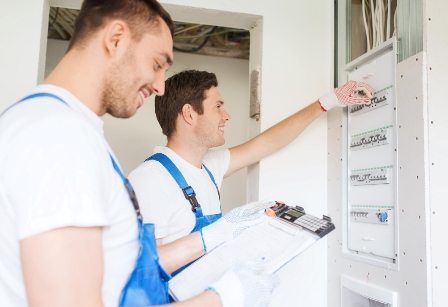Ensuring the safety of your home and loved ones starts with a well-maintained electrical system. In this article, we’ll explore essential tips for home electrical system maintenance, emphasizing the importance of safety in every step.
Understanding Your Home Electrical System
Your home’s electrical system is a complex network of wires, circuits, and components. Understanding its layout is crucial for identifying potential issues and ensuring a safe living environment. Familiarize yourself with the main electrical panel and know the purpose of each circuit.
Common Electrical Issues
Electrical issues are not uncommon in homes, ranging from flickering lights to faulty outlets. While some problems are minor and can be addressed with caution, others pose significant risks. It’s crucial to identify and address these issues promptly to avoid accidents.
DIY Safety Measures
When dealing with minor electrical problems, DIY can be tempting. However, safety should always be the priority. Ensure you have a basic understanding of electrical safety, use insulated tools, and turn off the power before attempting any repairs. If unsure, consult a professional.
When to Call a Professional
While DIY is suitable for minor issues, certain scenarios demand professional expertise. Complex wiring problems, electrical panel upgrades, or installations should be handled by licensed electricians. Attempting such tasks without proper knowledge can lead to hazardous situations.
Electrical Panel Maintenance
The electrical panel is the heart of your home’s electrical system. Regularly inspect it for signs of wear, overheating, or corrosion. Keep the area around the panel clear for easy access. If you notice any abnormalities, consult a qualified electrician.
Checking and Replacing Outlets and Switches
Faulty outlets and switches can pose serious risks. Regularly check them for signs of damage or overheating. If you notice any issues, replace them immediately using proper safety measures. Always turn off the power before working on electrical outlets or switches.
Proper Use of Extension Cords
Extension cords are convenient but can be dangerous if misused. Avoid overloading them, and never run them under carpets or rugs. Check for frayed cords and replace them promptly. Consider installing additional outlets if relying on extension cords becomes a habit.
Lighting Maintenance
Maintaining proper lighting is not just about ambiance; it’s also a safety measure. Regularly check and replace light bulbs, ensuring they match the recommended wattage for fixtures. Consider switching to energy-efficient LED bulbs for longer lifespan and reduced fire risk.
Grounding Systems and Their Importance
Grounding is a safety feature that prevents electrical shocks. Ensure your home’s electrical system is properly grounded. In older homes, consult an electrician to assess and upgrade the grounding system if necessary.
Surge Protection
With the increasing reliance on electronic devices, surge protection is crucial. Install surge protectors to safeguard your valuable electronics from power surges. Consider whole-house surge protection for comprehensive coverage.
Outdoor Electrical Safety
Outdoor electrical systems require special attention. Ensure all outdoor outlets are weatherproof and covered when not in use. Check for exposed wiring and address it promptly to prevent water damage and electrical hazards.
Fire Safety Measures
Electrical issues are a common cause of house fires. Install smoke detectors in key areas of your home and test them regularly. Avoid overloading circuits, and if you notice any burning smell or sparks, immediately turn off the power and consult a professional.
Regular Inspections and Maintenance Schedule
Develop a routine for inspecting your home’s electrical system. Schedule annual professional inspections, and perform regular checks on outlets, switches, and visible wiring. A proactive approach can identify issues before they escalate.
FAQs
We recommend performing visual checks monthly and scheduling professional inspections annually.
Minor replacements can be done by homeowners, but if in doubt or for complex issues, consult a professional electrician.
Signs include overheating, tripped breakers, and strange odors. If you notice any, contact an electrician immediately.
While not mandatory, surge protection adds an extra layer of security for valuable electronics, especially in areas prone to power surges.
Ensure outdoor outlets are weatherproof, covered when not in use, and promptly address any exposed wiring.
Conclusion
Prioritizing safety in home electrical system maintenance is not just a choice; it’s a responsibility. By understanding your home’s electrical layout, addressing issues promptly, and knowing when to seek professional help, you create a secure environment for your family. Regular maintenance, coupled with safety measures, ensures your home remains a haven.


